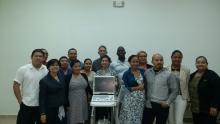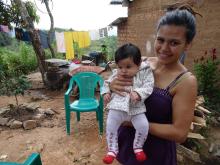Belize joins the Salud Mesoamérica 2015 Initiative
Fuente: Caribseek News
SAN PEDRO (IDB) - Today Belize joined the Salud Mesoamérica 2015 Initiative (SM2015) for a project that aims to reduce maternal and infant mortality among the poor, benefiting more than 30,000 young women and children.
Tags


